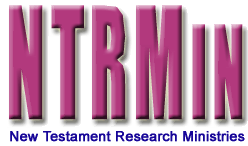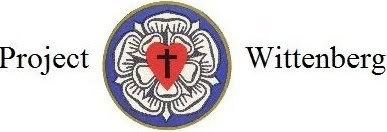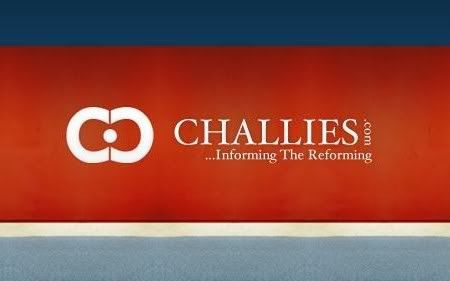 Seems like I've spent a lot of time dealing with canon issues lately. I don't know why, but it seems that assumptions rule the day when it comes to the issue of the Jews, the canon, their alleged exclusion of the deuterocanonical books, books which were allegedly held as Scripture by the Alexandrian Jews, the issue of when they closed the canon, and so on. No one denies that, in largely Hellenistic times, the Greek LXX (Septuagint) would be the translation of choice, especially for a gospel that was being preached to the Greeks. Allegedly, the Jews of Alexandria included the extra books, those which comprise the Apocrypha (deuterocanonicals if you prefer), within their text, but inclusion into a set of books doesn't necessarily mean that these were held to be divine and inspired. Usually, it is argued, these book were part and parcel of their canon, but it seems they disappeared at Jamnia, some say as a polemic against the Christians.
Seems like I've spent a lot of time dealing with canon issues lately. I don't know why, but it seems that assumptions rule the day when it comes to the issue of the Jews, the canon, their alleged exclusion of the deuterocanonical books, books which were allegedly held as Scripture by the Alexandrian Jews, the issue of when they closed the canon, and so on. No one denies that, in largely Hellenistic times, the Greek LXX (Septuagint) would be the translation of choice, especially for a gospel that was being preached to the Greeks. Allegedly, the Jews of Alexandria included the extra books, those which comprise the Apocrypha (deuterocanonicals if you prefer), within their text, but inclusion into a set of books doesn't necessarily mean that these were held to be divine and inspired. Usually, it is argued, these book were part and parcel of their canon, but it seems they disappeared at Jamnia, some say as a polemic against the Christians.When the OT Scriptures were translated into the Greek language, it was done by a group of Jewish elders commonly known as "the 70" (by some accounts there were as many as 72), at the request of Ptolemy II. Although some credit them to have translated the entirety of the Old Testament and the other books, it was solely the Pentateuch (the five books of Moses) which they translated. There is a legend that these elders translated the books independently of one another, when they compared the translations, they were found to be completely uniform, word for word. I've heard this story from many of the Catholics I've dialogued with, but it is stated under the assumption that the "70" translated the entire Alexandrian text. As time progressed, other books were translated by various translators. The earliest codex of the LXX (Vaticanus) is dated early 4th century and was transcribed by Christians, not Jews. It is obvious that the Apostles quoted from the Greek LXX, but again, there is no real evidence that the text they used included the extra books (from here on referred to as the LXX+). I'm sure they were familiar with the books, but to equate familiarity with canonical acceptance would be assumption at its purest. Paul wasn't hesitant to use pagan sources if they conveyed a certain truth, as he did in Acts 17:28 with the Stoic philosopher Aratus, in 1 Corinthians 15:32 with Menander, and in Titus 1:12 with the poet Epimenides. These citations, by virtue of their inclusion in Scripture, become Scripture. However, their inclusion into Scripture doesn't make the entirety of their writings Scripture as a result.
Then we get to the issue of books being "tossed out" at the so-called council of Jamnia, but this was not a council in the sense of one that comes together to vote, neither did they toss out books. Talmudic sources recorded the debates over canonical books, such as Esther, Ecclesiastes, and others, but there are no records indicating that deuterocanonical books were ever debated, much less "tossed out." Roger Beckwith, in his book The Old Testament Canon of the New Testament Church, mentions the debates over canonical books and makes an excellent point. He states that if history records the debates over books which remained in the canon, how much more it would have recorded debates over books which were taken out. Yet, there are no such records to indicate that this was ever the case. Instead, from Catholics, we find them associating the Jewish absence of recognition towards the Apocryphal books with the debates surrounding the few "canonical" books. They relate the two regardless of the fact that there were no issues regarding the Apocrypha. The canonical books debated remain part and parcel of each of our canons to this very day.
For some funny reason, it seems that the Jews just don't factor in anymore when it comes to the Old Testament canon. At least that's how it seems when speaking to the Catholic apologist. They boldly claim that Protestants are following a Jewish decision rather then a Christian one. Yet, Paul states in Romans 3:2 that the Jews were "...entrusted with the oracles of God." Paul wouldn't have said it unless he was familiar with the books they were familiar with. It would seem that the Jews understood what comprised the divine words of God and Paul gives credence to this. On another note, Jesus seems to imply the extent of the Jewish canon with His words in Luke 11:51. If we go with the Jewish chronological order of the books, this would place Genesis, where Abel's murder is recorded, as the first book and 2 Chronicles, where Zechariah is killed, as the last book of the canon. One particular Catholic argued that, for this to work, the Zechariah spoken of here must be the "son of Barachiah" according to its parallel verse in Matthew 23:35, thus this would be a reference to Zechariah 1:1 and not 2 Chronicles 24:20-22, but this doesn't allow for Christ's words considering the Zechariah of Zechariah 1:1 didn't die in the manner Christ describes. So, why does Matthew associate the "son of Barachiah" with Zechariah? It could be that the Zechariah of 2 Chronicles 24:20-22 had a common ancestor who had the name "Barachiah." It wasn't uncommon for the Jews to use the term "son of" with the name of a well-known ancestor, rather then with the paternal. A good example of this would be Jesus, He was known as the "son of Joseph" (Luke 3:23; John 1:45) but He was also known as the "son of David" (Matthew 12:23; Mark 10:47).
To be continued...
































8 comments:
::wanders over from oz and waves::
Hey Ali,
A wave right backatcha!
churchmouse,
Were you ever at Steve Ray's DCF boards or the FreshHope boards?
I thought I remembered seeing a "churchmouse" there...
Hi Rho,
At one time I was on Steve Ray's board as "Charisman" but that was years ago. I've never heard of FreshHope. As Churchmouse, I was on the Catholic Answers Forum and am presently on the The Bereans Forum. But you probably know me as Ray from Svendsen's Areopagus and the now-defunct Heavenly Realm ;-)
Peace,
Ray
Oh, OK.
I was Rho from the Areopagus...say, what's the Berean Forum? Sounds interesting.
-ALAN
Yeah, I remember your nick from the forum :-) The Bereans (www.thebereans.net) is a Filipino Evangelical forum that is somewhat like CARM. They have various forums, but I stick with the Catholic forum. I'm not Filipino and some of the members post in Tagalog, but I try my best. Some of the Filipino Catholics can get pretty down and dirty believe it or not. One guy, just to unnerve me, posted his response purposely in Tagalog. When I reminded him that we're adults and if could resubmit it in English, he submitted another in Tagalog. Oh, well :-) If you're interested the forum can be found here: http://thebereans.net/forum/index.php?PHPSESSID=1839f8b83484c7ee5964def3790acb61&board=8.0
Peace,
Ray
Ok- It's now March 31. I expect a new blog entry from you in April.
Ah Jim, your wish is my command. Sorry for the delay. I'll get my act together some day, God willing.
Peace,
Ray
Post a Comment